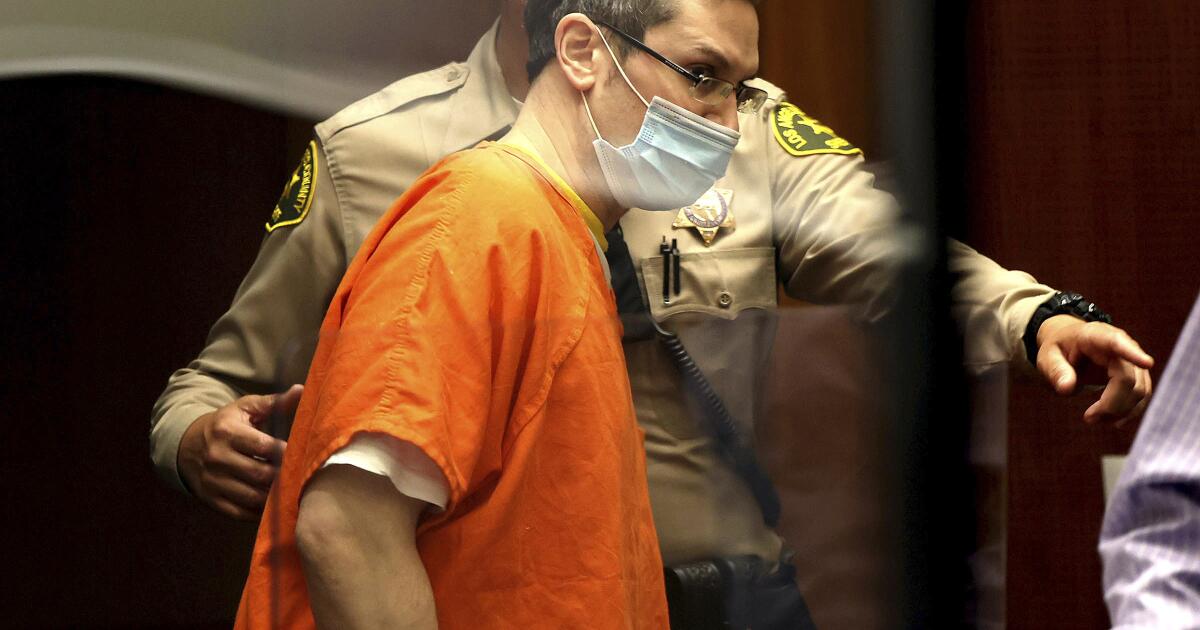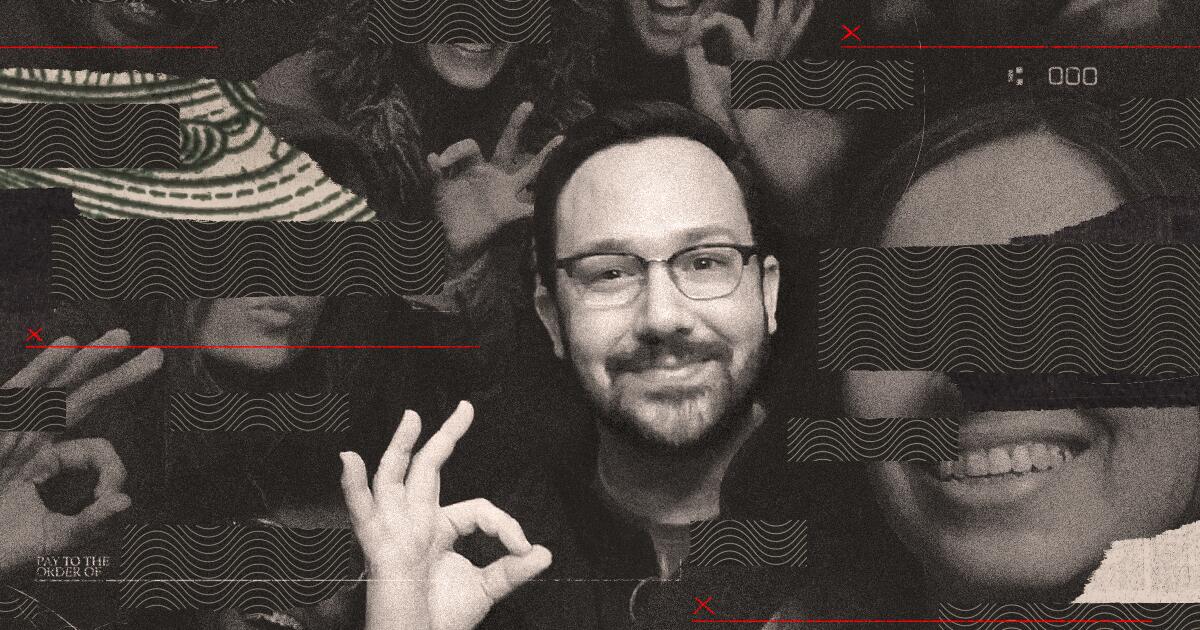Hollywood producer receives nearly 150 years for two deaths, rapes
An L.A. County Superior Court judge handed a 146-year sentence to Hollywood producer David Brian Pearce on Wednesday for multiple rapes and the 2021 deaths of a model and her architect friend.
Pearce was found guilty in February on two counts of first-degree murder for the deaths of Christy Giles and Hilda Marcela Cabrales-Arzola, who overdosed on fentanyl. Prosecutors said Pearce supplied them with the drug.
Pearce was also found guilty of crimes against a series of women between 2007 and 2021, including three counts of forcible rape, two counts of sexual penetration with force, one count of rape of an unconscious or sleeping victim and one count of forced sodomy.
“This sentence delivers long-awaited justice for Cabrales-Arzola, Giles, and the courageous sexual assault victims who came forward and testified,” L.A. County Dist. Atty. Nathan J. Hochman said in a statement.
“Not only were the victims sexually assaulted, but the lives of Cabrales-Arzola and Giles were stolen in one of the most devastating ways — a fentanyl-induced sexual assault by Pearce.”
A call to Pearce’s lawyer was not immediately returned.
Pearce’s co-defendant, 46-year-old Brant Osborn, is headed to a pretrial appointment on Nov. 18; after a mistrial in February, he will probably face a second trial.
In November 2021, Giles and Cabrales-Arzola, as well as Michael Ansbach, who had spent the day filming for a documentary Pearce was supposedly producing, went out with the producer and his roommate, Osborn. The night at an East Los Angeles warehouse rave involved heavy cocaine use.
The group returned to Pearce’s Beverly Hills apartment in the early-morning hours.
That was about all that was agreed upon among the parties.
Pearce provided the two women and Ansbach with gamma-hydroxybutyrate (GHB) and fentanyl, causing Giles and Cabrales-Arzola to overdose, according to the district attorney’s office.
Although Cabrales-Arzola called a ride-sharing service, neither she nor Giles left.
About 11 hours later, Pearce dropped off Giles at a hospital; 90 minutes later, he did the same for Cabrales-Arzola, the district attorney’s office said.
Court records showed the car that dropped the women off did not have license plates, which Ansbach said he saw Pearce remove. Though Ansbach was originally arrested in connection with the women’s deaths, he became an important prosecution witness.
Giles was dead by the time she reached the hospital. Cabrales-Arzola survived for 11 days before being pulled off life support by her family.
Pearce maintained during his trial that he found the two women unconscious in his apartment around 5 a.m. near liquor bottles and a powdery substance. He said he didn’t think much of it, at first.
“The lifestyle that I was living at the time was not very conducive to regular behavior, if that makes sense,” Pearce, 43, testified earlier this year. “It was not uncommon for people to use my house as a crash pad, a party house. I know it’s horrible, but at least on a weekly basis friends were passing out at my house.”
Pearce said he grew concerned when neither woman woke up and repeatedly checked on them, eventually taking them to different hospitals.
He said he administered CPR but did not call 911.
Since his arrest in December 2021, seven women came forward to accuse Pearce of raping them.
In testimony that spanned two days, Pearce denied each rape accusation, saying he’d never met at least one of his accusers and dismissing the rest of the encounters as consensual.
Pearce described a booze- and drug-fueled lifestyle and said most of the women came on to him at parties or through dating apps.
“This case is a stark reminder of the devastation caused by fentanyl,” Hochman said. “Fentanyl poisoners who harm and exploit others will be held accountable.”
Times staff writer James Queally contributed to this report.

